Press tooling in the automotive sector is a complex and highly specialized field that requires advanced technical skills and the use of cutting-edge equipment. It plays a crucial role in producing high-quality automotive parts, thereby contributing to the overall efficiency and productivity of the automotive industry. In the first part, we will provide a definition of press tooling, its applications, and the advantages it offers to the automotive sector. In the second part, we will discuss the manufacturing process of press tooling and offer tips for choosing a reliable service provider.
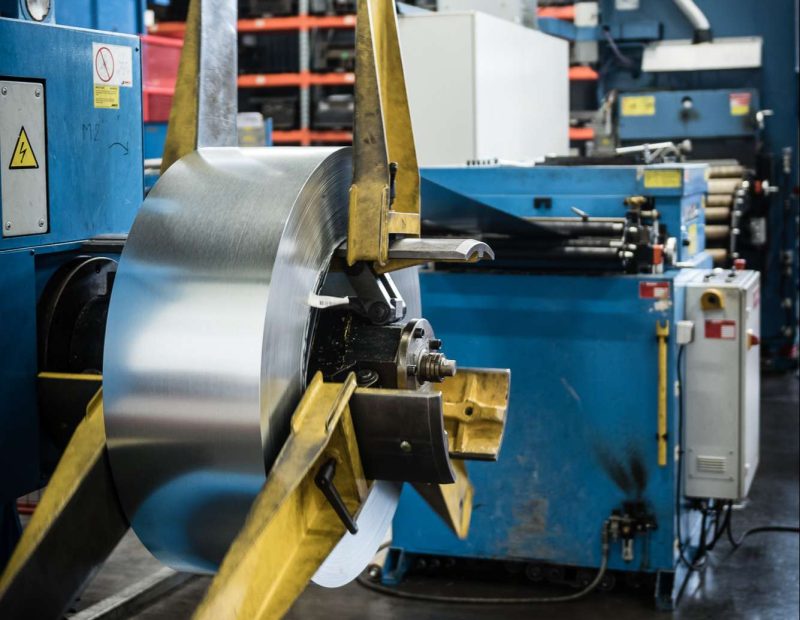
PRESS TOOLING FOR THE AUTOMOTIVE SECTOR: DEFINITION
Press Tooling in the Automotive Sector
Press tooling in the automotive sector is a key component in the mass production of automotive parts. It is designed to manufacture simple or complex shapes based on the requirements of the final product. Press tooling must be durable, precise, and capable of producing large quantities of parts without compromising quality.
Press tooling in the automotive sector can be divided into two main categories:
- Cutting Tools: These are used to cut sheet metal parts from flat metal sheets or coils. Cutting tools can be used to cut parts such as doors, hoods, fenders, body panels, and chassis components.
- Forming Tools: These are used to shape sheet metal parts into three-dimensional forms. Forming tools can produce parts such as body panels, structural elements, suspension components, and interior components like seats and dashboards.
Technological advancements such as digital simulation, additive manufacturing, and robotics are also used to design and produce more precise and efficient press tools. Manufacturers of forming tools can use digital simulation to test and optimize tool design before production, which can help reduce costs and production times.
In the automotive sector, stamping presses are typically used in combination with welding robots and surface treatment processes to create high-quality automotive parts in large quantities and at competitive costs. Automotive manufacturers work closely with press tooling suppliers to develop tools that meet quality, cost, and production time requirements.
Press tooling in the automotive sector is continuously evolving to meet higher production needs, the diversification of car models, and regulatory requirements regarding safety and emissions.
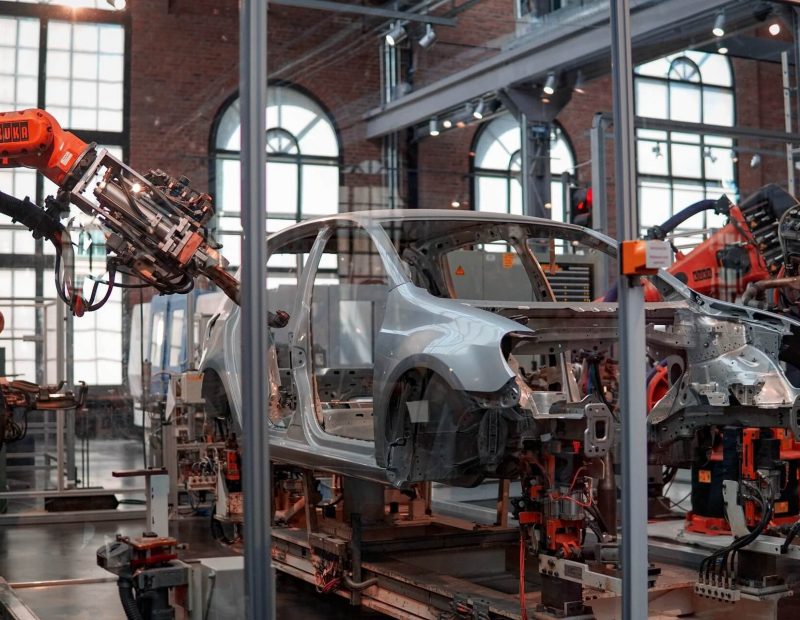
What are the Applications of Metal Parts Manufactured by Press Tooling in Automobiles?
The applications of metal parts manufactured by press tooling in automobiles are very diverse. They can be used to reinforce the metal architecture of the car as structural parts. Metal parts can also be used for overmolding with plastic or rubber to improve the acoustic or vibration performance of vehicles.
Some metal parts produced by press tooling serve as supports for manufacturing shock absorbers to improve vehicle safety. Others are components of electric heating systems in automotive air conditioners. In short, metal parts manufactured by press tooling have varied applications in automobiles.
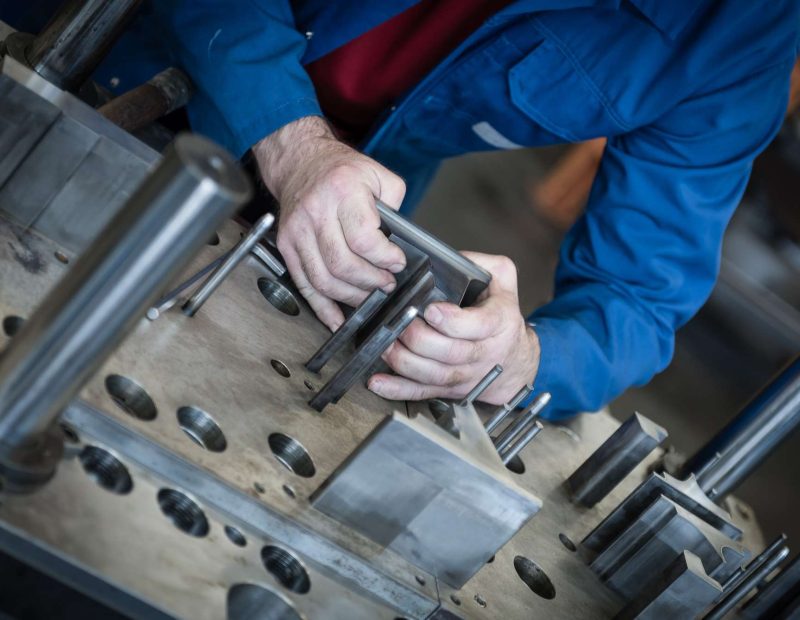
Why is the Automotive Sector So Keen on Press Tooling?
The automotive sector uses press tooling for several important reasons. Here are the main reasons:
- Efficient and High-Volume Production: Cars are produced in large quantities, requiring efficient and fast manufacturing processes. Press tools allow for the production of large quantities of parts with high precision, reducing production time and costs.
- High Precision: Cars must meet very strict safety standards. Press tools can produce parts with high precision, ensuring the quality and safety of automotive parts.
- Versatility: Press tools can be used to produce a wide variety of parts, making them very versatile. Automotive manufacturers can use the same tools to produce several different parts.
- Durability: Press tools are designed to be highly resistant and durable. This means they can withstand thousands of production cycles, reducing maintenance costs and downtime.
- Innovation: Technological advancements such as digital simulation and 3D printing allow for the design and production of more innovative and efficient press tools.
- Reduced Costs: Press tools enable the production of parts at a lower cost compared to other production methods. This is particularly important for the automotive sector, which must keep production costs low to remain competitive in the market.
- Waste Reduction: Press tools allow for the production of parts with minimal waste, helping to reduce costs and environmental impact.
In summary, the automotive sector heavily utilizes press tooling due to its ability to produce large quantities of parts with high precision, versatility, durability, and reduced costs. These advantages are essential for the production of efficient, high-quality, and cost-effective cars.
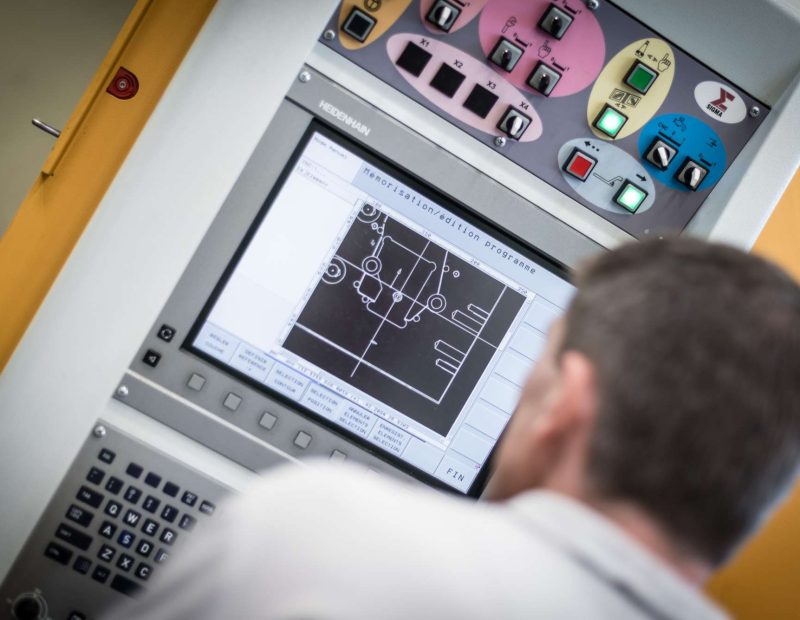
MANUFACTURING PRESS TOOLS FOR THE AUTOMOTIVE SECTOR
What are the Processes Used for Making Press Tools?
Press tools for the automotive sector are made using various manufacturing processes. Here are some of the commonly used processes:
- Computer-Aided Design (CAD): The design of press tools often begins with the use of CAD software, which allows engineers to create detailed 3D models of the tools. These models are used to visualize and validate the design before manufacturing.
- Mechanical Manufacturing: The fabrication of press tools generally involves the use of machine tools such as milling machines, lathes, and grinders to shape the various parts that make up the tools. These machines allow for precise machining of the surfaces and contours of components.
- Electrical Discharge Machining (EDM): Also known as spark erosion, EDM is a process used in the manufacturing of press tools for the automotive sector. It allows for cutting, machining, and shaping conductive materials using controlled electrical discharges.
- Heat Treatment: Some components of press tools, such as dies and punches, often require heat treatment to improve their strength and durability. Heat treatment can involve processes such as quenching, tempering, or carburizing.
- Finishing and Coatings: The surfaces of press tools can undergo finishing treatments to improve wear resistance and performance. This may include the application of special coatings such as titanium nitride to reduce friction and extend the life of the tools.
- Grinding: This machining technique is essential in the manufacturing of press tools for the automotive sector. It allows for achieving tight tolerances, excellent surface finish, and dimensional accuracy, ensuring the quality and performance of press tools.
- Quality Control: Throughout the manufacturing process, rigorous quality controls are performed to ensure that press tools meet the required specifications. This may involve dimensional measurements, strength tests, and other analyses to verify tool compliance with quality standards.
These manufacturing processes are often carried out by teams of engineers and technicians specialized in the production of press tools for the automotive sector.
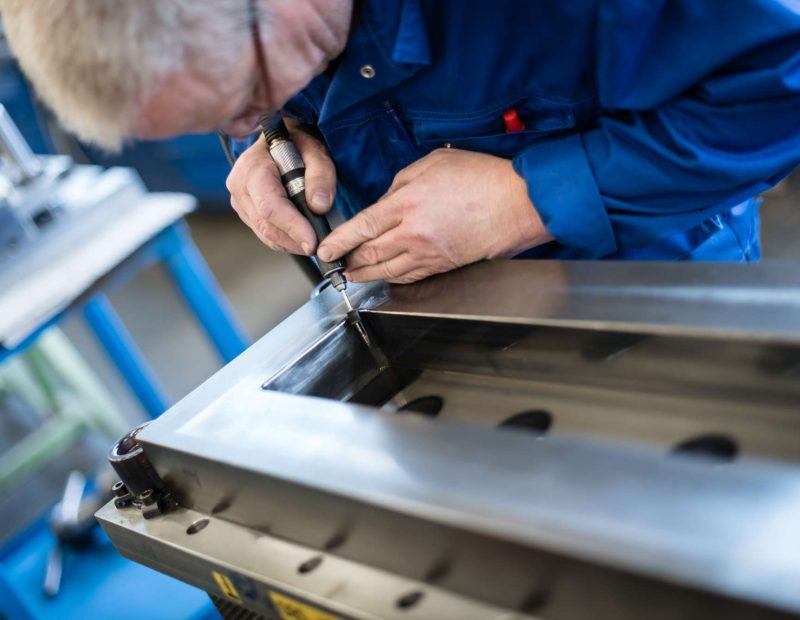
Trusted Partner in Manufacturing Press Tools for the Automotive Sector
Companies specializing in the manufacture of press tools for the automotive sector must possess a set of technical skills, be flexible, responsive, have high production capacity, be innovative, and offer after-sales service to remain competitive and meet market demands.
Since 1973, Ouréval has been putting its expertise at the service of automotive companies by designing and manufacturing customized press tools. Based in Alsace, this company offers a complete range of services from co-development to the final production of tools, as well as their use on presses.
Ouréval is a reliable partner that offers many advantages to meet market demands:
- Technical Expertise: With 50 years of experience, Ouréval has solid expertise in the design, manufacture, and maintenance of press tools, ensuring their quality and durability.
- Flexibility: Ouréval can design and produce press tools for a wide variety of metal parts while quickly adapting to market demand changes.
- Responsiveness: This Alsatian company prioritizes meeting deadlines and managing emergencies, responding quickly to customer demands.
- Production Capabilities: Ouréval has extensive production capabilities to meet customer needs in terms of quantity and delivery times. Its diverse machine park includes presses ranging from 25 to 400 tons.
- Innovation: Ouréval stands out for designing innovative and high-performance press tools using advanced technologies to improve quality, competitiveness, and production precision.
- Quality: The press tools manufactured by Ouréval meet strict quality standards, ensuring their reliability and durability. The company early adopted a quality management system compliant with the automotive standard IATF16949 in addition to ISO 9001.
- After-Sales Service: Ouréval offers quality after-sales service, ensuring the maintenance and repair of press tools if necessary.
For more information on the design and manufacture of press tools, do not hesitate to contact the Ouréval team.
A certified quality partner
for the overall management of your projects
Comprehensive solution
From the prototype to the delivery of series parts to the client
Tailored production
Medium and large series
50 years of experience
30 people at your service - recognised know-how and expertise
Certified quality
Certification according to ISO 9001 and IATF 16949
